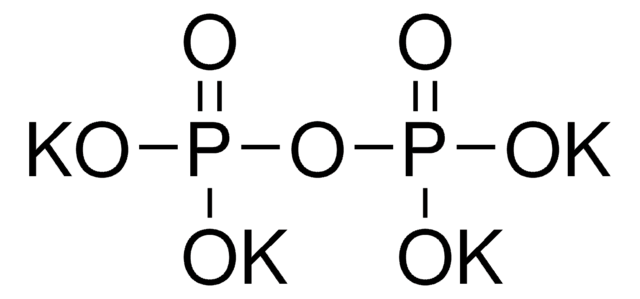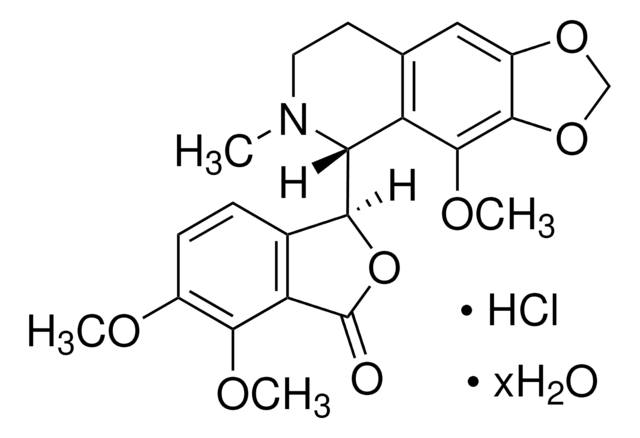A9770
Aldehyde Dehydrogenase, potassium-activated from yeast
lyophilized powder, ≥10 units/mg protein
Synonym(s):
ALDH, CoA-independent aldehyde dehydrogenase, m-methylbenzaldehyde dehydrogenase, Aldehyde:NAD[P]+ oxidoreductase
About This Item
biological source
yeast
form
lyophilized powder
specific activity
≥10 units/mg protein
storage condition
(Tightly closed. Dry)
color
white
UniProt accession no.
foreign activity
NADH oxidase ≤0.01%
NADPH oxidase ≤0.01%
alcohol dehydrogenase ≤0.01%
lactic dehydrogenase ≤0.01%
storage temp.
2-8°C
General description
Research area: Cell Signaling
Application
- for enzyme immobilization and to oxidize formaldehyde to formate
- to study the functional relation between hydrazone
- to measure ethanol production.
Biochem/physiol Actions
Unit Definition
Physical form
antibody
related product
Storage Class Code
11 - Combustible Solids
WGK
WGK 3
Flash Point(F)
Not applicable
Flash Point(C)
Not applicable
Personal Protective Equipment
Certificates of Analysis (COA)
Search for Certificates of Analysis (COA) by entering the products Lot/Batch Number. Lot and Batch Numbers can be found on a product’s label following the words ‘Lot’ or ‘Batch’.
Already Own This Product?
Find documentation for the products that you have recently purchased in the Document Library.
Customers Also Viewed
Our team of scientists has experience in all areas of research including Life Science, Material Science, Chemical Synthesis, Chromatography, Analytical and many others.
Contact Technical Service


